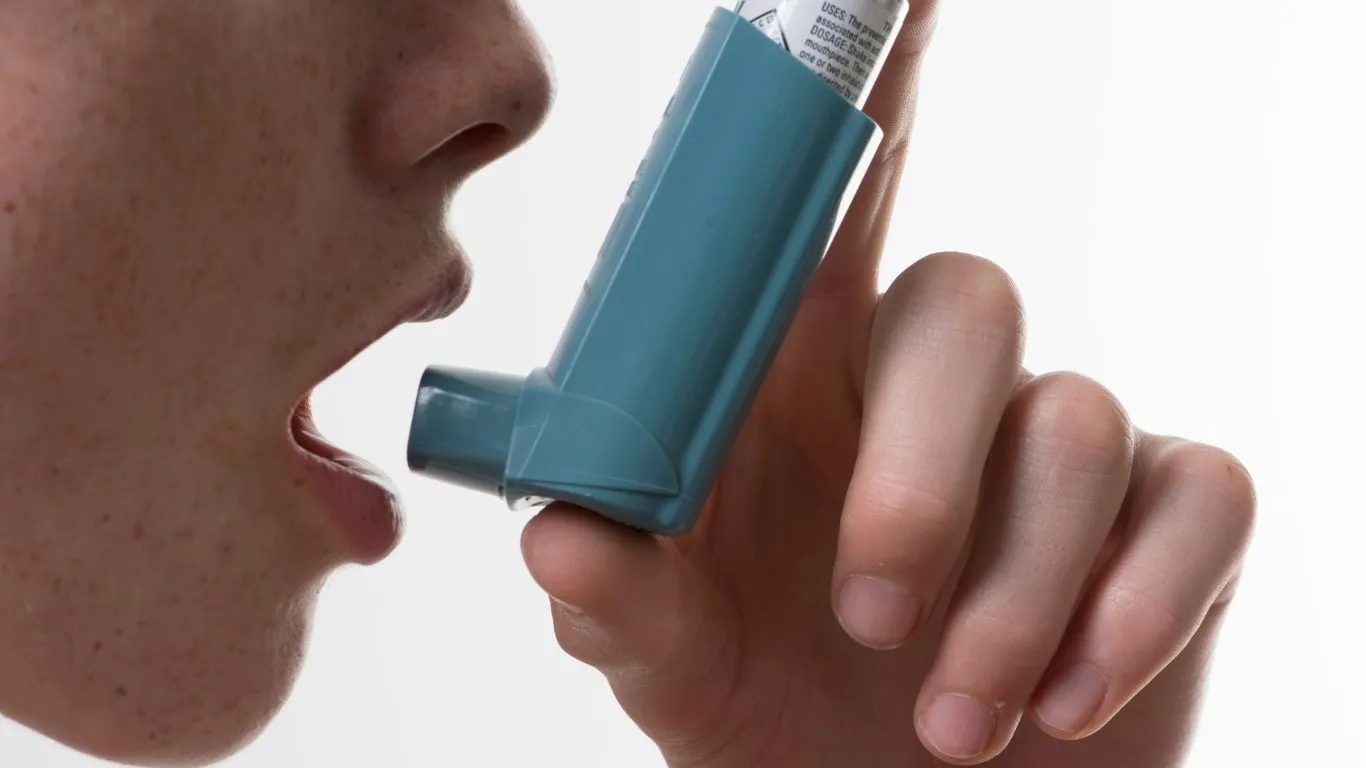When Asthma Triggers Weird Heartbeat Feelings: What You Should Know
If you’ve ever asked yourself, “Can asthma cause weird heartbeat feelings?”—you’re not alone. I’ve had patients ask me this exact question more times than I can count. As a pulmonary nurse practitioner, I’ve seen firsthand how asthma can do more than just make breathing hard. Sometimes, it throws in those bizarre chest flutters or thumps that make you stop and wonder, “Is this my asthma… or my heart?” Let’s unpack this mystery together, because yes—it’s a thing, and you’re definitely not imagining it.
Understanding the Link Between Asthma and Heart Palpitations

Why Your Chest Might Feel Like It’s Doing the Cha-Cha
Asthma, at its core, is an inflammatory condition that narrows the airways. But what people often don’t realize is that asthma can affect more than just your lungs. When you’re struggling to breathe, your body reacts in full-blown panic mode—adrenaline surges, oxygen drops, and your heart may respond with palpitations or an irregular rhythm.
From what I’ve seen in practice, these sensations usually kick in during or after an asthma attack. One of my patients described it perfectly: “It feels like my heart is skipping beats or fluttering like a bird in my chest.” And while that can be alarming, it’s often a physiological chain reaction rather than something inherently wrong with your heart.
So, Can Asthma Cause Weird Heartbeat Feelings?
Yes, absolutely. It can. Those strange sensations you’re feeling? They’re often linked to:
- Oxygen fluctuations – During an asthma flare-up, low oxygen can trigger the heart to beat faster or irregularly.
- Inhaler side effects – Especially with short-acting beta agonists like albuterol. These meds open airways but also stimulate the heart.
- Anxiety and stress – Let’s be honest, not being able to breathe is scary, and anxiety alone can cause those thumpy sensations.
Sometimes, it’s a combination of all three. I once had a young adult patient who kept ending up in the ER thinking they were having a heart attack—turned out, their albuterol was causing racing heartbeats on top of panic attacks, all stemming from poorly controlled asthma.
When Heart Symptoms Mimic Asthma—and Vice Versa

The Tricky Overlap Between Lungs and Heart
It’s wild how similar some asthma and heart symptoms can be. Shortness of breath, chest tightness, fatigue—they don’t always scream “lungs” or “heart” specifically. That’s where medical experience comes into play. I always tell my patients, “Your lungs and your heart love to share drama.”
Here’s how I help patients tell them apart (but of course, always consult your own provider):
- If symptoms improve with inhalers—likely asthma.
- If they get worse with exertion, even without wheezing—could be cardiac.
- If you’re waking up gasping for air at night, especially if lying flat—get evaluated for heart failure, stat.
That’s not to scare you—it’s to empower you. As someone who’s treated hundreds of asthma patients, I’ve seen the overlap enough to know that ignoring these symptoms never pays off.
Medications: Helpers or Hidden Triggers?

How Your Inhaler Might Be Messing With Your Pulse
Let’s talk meds, because they’re usually the not-so-obvious culprits. Short-acting inhalers like albuterol or levalbuterol can cause tachycardia—that’s a fancy word for rapid heart rate. These medications are basically adrenaline mimics. They relax the airway muscles (yay!), but they also fire up your heart (eh, not always yay).
Some of my patients even stop using their inhalers because the racing heart makes them anxious. That’s not ideal either. Here’s a tip: If your rescue inhaler always makes your heart pound, bring it up with your provider. We can usually tweak the dose or explore alternatives.
Note: Long-term controllers like inhaled corticosteroids generally don’t cause palpitations. It’s mostly the fast-acting bronchodilators that stir the pot.
When to Be Concerned: Is It More Than Just Asthma?

Red Flags You Shouldn’t Ignore
Now, let’s be real—while weird heartbeat feelings can be part of the asthma package, there are moments when you’ve got to hit pause and really assess what’s happening. One thing I always tell my patients is this: Don’t try to play detective when your heart feels off—just get it checked.
So, how do you know it’s time to get a provider involved? Here are a few signs I personally keep an eye out for:
- Heart palpitations that don’t go away after your breathing settles
- Dizziness, fainting, or feeling like you’re going to pass out
- Chest pain or pressure that lingers—especially if it radiates to your neck, jaw, or arm
- Waking up in the night gasping or with a pounding heart, even when asthma seems under control
I had a middle-aged patient once who chalked up everything to “just asthma” until we ran an ECG and found an arrhythmia that needed treatment. Catching that early made all the difference.
Asthma or Anxiety—or Both?
This combo is one I see all the time. You start wheezing, your chest tightens, and suddenly your brain spirals into full-on panic mode. That sends your heart racing even more, which fuels the panic—and the cycle continues. Sound familiar?
It’s super common, and honestly, it makes sense. Not being able to breathe is scary. But here’s what’s important: anxiety doesn’t mean your symptoms aren’t real. They’re very real. It just means we might need to treat both your lungs and your nervous system to get things under control.
How to Tell if It’s the Inhaler or the Condition

Listening to Your Body (and Not Just the Label)
I’ve had patients come in saying, “Every time I use my inhaler, I feel my heart jumping.” That’s not something to ignore, but it also doesn’t mean you should stop using your meds cold turkey. Instead, I usually walk through a few key questions with them:
- Do the palpitations happen only after the inhaler?
- Are you using it more often than prescribed?
- Have you recently changed brands or dosages?
- Are you also drinking a lot of caffeine or using decongestants?
Sometimes it’s not just one thing—it’s the mix. I had a college student who was hitting their rescue inhaler 4-5 times a day and also downing energy drinks to stay awake for exams. It was a perfect storm for heart flutters. Once we got them on a long-term asthma controller and cut back the caffeine, the symptoms practically vanished.
What You Can Do Right Now
If you’re feeling those “weird heartbeat feelings” and suspect your asthma might be involved, here are a few things you can try:
- Track your symptoms – Keep a log of when the palpitations happen and what you were doing at the time.
- Use a peak flow meter – This can help you correlate breathing changes with heart symptoms.
- Hydrate and rest – Dehydration and fatigue can worsen both asthma and palpitations.
- Talk to your provider – Don’t wait. Bring up the heart stuff—it’s all connected.
Sometimes we adjust meds, sometimes we explore cardiac testing. It’s not overkill—it’s being proactive. One of the best things you can do is advocate for your whole-body health, not just your lungs.
Asthma Action Plans and Heart Awareness

Get Ahead of It With a Plan
Most people associate asthma action plans with managing flare-ups—but I like to include cardiac awareness in mine too. Because let’s face it, when your breathing’s off, your heart often follows.
Here’s what I include in my patient plans:
- What symptoms are expected (like slight heart racing after an inhaler)
- What symptoms should prompt a call or visit (like palpitations lasting more than 10 minutes)
- When to go to the ER (chest pain, fainting, or fast heartbeats with shortness of breath)
I’ve found that when patients feel more informed, they feel less scared—and that reduces anxiety-related palpitations too. It’s all about confidence and control.
Long-Term Tips for Managing Asthma Without the Heart Drama

Daily Habits That Can Make a Big Difference
One thing I’ve noticed over the years is that managing asthma well often means fewer weird heart symptoms—less shortness of breath means less panic, fewer inhaler overuses, and fewer adrenaline surges. Win-win-win.
So what works long-term? Everyone’s different, but here are the go-to lifestyle tweaks I often recommend based on what’s helped my patients (and yes, myself too—I have mild asthma!):
- Stick to your controller meds – Don’t just wait for symptoms to flare up. Daily meds keep inflammation low and prevent the spiraling chain of symptoms.
- Limit caffeine and energy drinks – These can sneakily worsen palpitations, especially when combined with inhalers.
- Practice mindful breathing – Deep belly breathing, box breathing, or guided meditation can calm both your lungs and your heart. Total game-changer during flare-ups.
- Keep a symptom journal – Write down what triggers your asthma and when you feel those heartbeat flutters. Patterns usually show up within a week or two.
One of my patients started tracking her symptoms with a simple notebook, and within days she noticed her palpitations followed right after using her rescue inhaler… and after drinking iced coffee. Easy fix. Switched to a controller inhaler and swapped her caffeine for herbal tea. Big improvement.
Working With Your Healthcare Team (And Not Just Googling)

Why Collaboration Is Key
As a pulmonary nurse practitioner, I can’t tell you how many times I’ve had people come in thinking they just needed a new inhaler when, really, their heart symptoms were part of a bigger picture. It’s never a one-size-fits-all solution. That’s why it’s so important to partner with a provider who listens, looks at the whole picture, and is willing to adjust the plan when something feels off.
If you feel something’s off—speak up. You know your body better than anyone else. Don’t worry about “bothering” your doctor. We want to know. I’d much rather a patient bring up something early than let it go until it’s an ER visit.
Tests That Might Be Helpful
Depending on your symptoms, your provider might suggest a few of these (I often do):
- ECG or EKG – Quick and painless way to check for irregular heart rhythms.
- Holter monitor – Wearable device that tracks your heart over 24–48 hours to catch any sneaky palpitations.
- Pulmonary function tests (PFTs) – Essential for gauging how your asthma is behaving and whether your meds are doing their job.
- Lab work – Sometimes electrolyte imbalances or thyroid issues can make your heart act up too.
It’s all about getting the full story, not just one chapter. The goal is you feeling good, breathing easy, and not jumping every time your heart skips a beat.
Let’s Wrap This Up—But Keep the Conversation Going
Asthma Isn’t Just a Lung Thing
So, circling back to the big question—can asthma cause weird heartbeat feelings? 100% yes. And it’s more common than you might think. Whether it’s from low oxygen, side effects from meds, anxiety, or just your body reacting to stress, the connection is real.
But here’s the good news—you’re not stuck with it. With the right treatment plan, clear communication with your provider, and a little detective work on your part, you can absolutely manage both your asthma and those funky heart sensations. I’ve helped patients do it, I’ve managed it myself, and I’m confident you can too.
Stay curious, stay proactive, and never ignore what your body’s trying to tell you.
References
- Asthma and Allergy Foundation of America (AAFA)
- American Heart Association (AHA)
- National Center for Biotechnology Information (NCBI)
- Centers for Disease Control and Prevention (CDC)
Disclaimer
This content is intended for informational purposes only and does not constitute medical advice. Please consult your healthcare provider before making any changes to your treatment plan or medication regimen. The views expressed are based on professional experience but should not replace individual clinical guidance.

Bianca Nala is a compassionate Nurse Practitioner with a strong background in primary and respiratory care. As a health writer for Healthusias.com, she combines her clinical expertise with a talent for clear, relatable storytelling to help readers better understand their health. Bianca focuses on topics like asthma, COPD, chronic cough, and overall lung health, aiming to simplify complex medical topics without losing accuracy. Whether she’s treating patients or writing articles, Bianca is driven by a single goal: making quality healthcare knowledge accessible to everyone.







